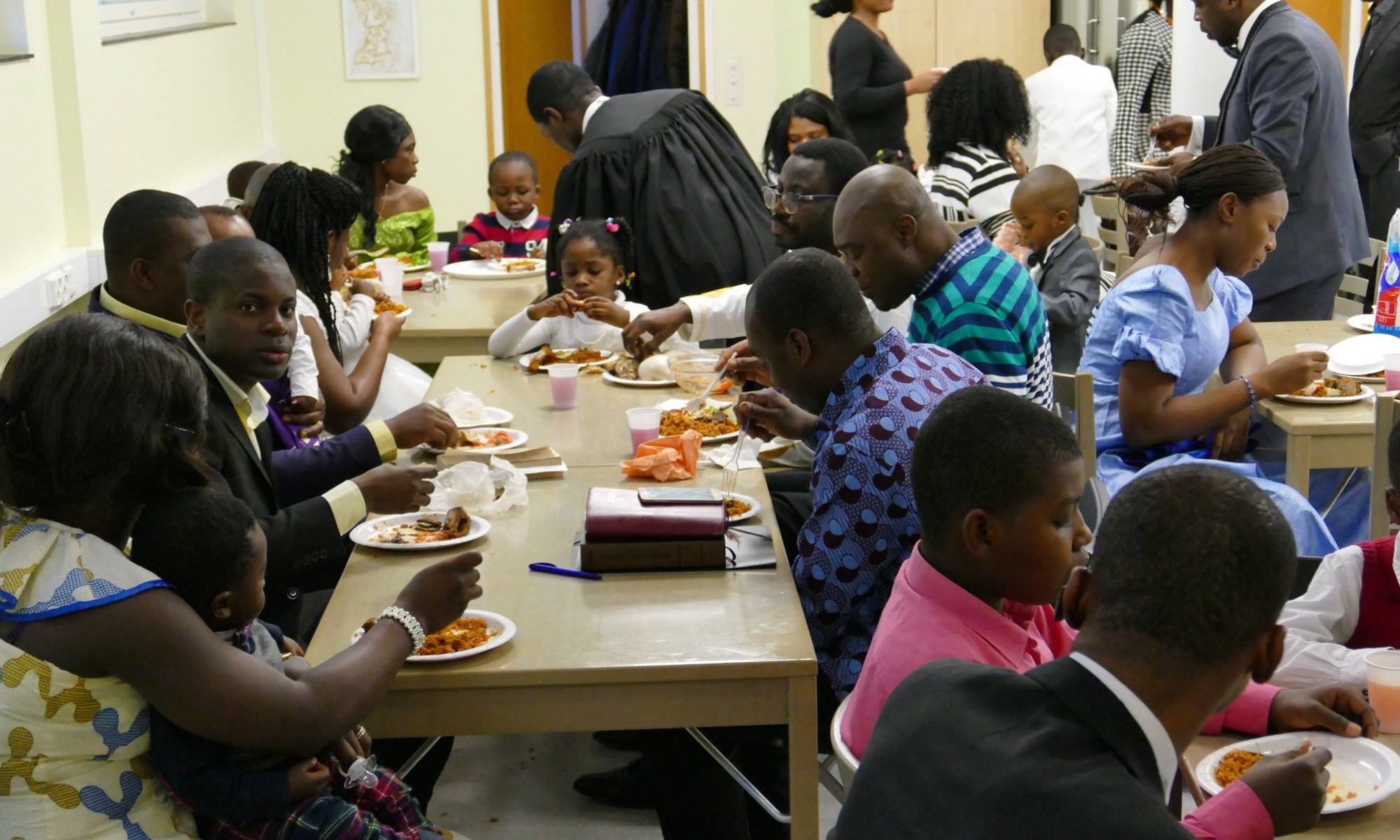Introduction
This edition of our Newsletter further discusses the responsibility of kingdom citizens. Believers are not supposed to be inward looking but have the responsibility of taking care of one another. Supporting one another, as believers, is, therefore, discussed.
Provoking one Another unto Good Works
“Let us hold fast the profession of our faith without wavering; (for he is faithful that promised;). And let us consider one another to provoke unto love and to good works: Not forsaking the assembling of ourselves together, as the manner of some is; but exhorting one another: and so much the more, as ye see the day approaching” (Heb 10:23-25).
According to the above paragraph, believers are being encouraged to explore ways of serving each other and to stir up each other to the more vigorous exercise of love with the practice of good works. The need to motivate one another to observe good works (i.e. righteousness, prayer, Bible study, etc) is an important duty of all believers in Christ. Christians, regardless of their denominations, are supposed to provide support and seek the well-being of each other. The need to support one another necessitates the conviviality of the children of God. As a community, it is important that believers take instructions from the people God has put in the charge of their souls. Timothy is exhorted to warn unruly believers, to comfort the feebleminded and to support the weak while being patient toward all men (1Ti 5:14). Supporting one another, therefore, means that evil should not be rewarded with evil, but each must strive to do good to one another (1Ti 5:15).
It is the need to support each other that Paul again admonishes that “if a man be overtaken in a fault, ye which are spiritual, restore such an one in the spirit of meekness; considering thyself, lest thou also be tempted. Bear ye one another’s burdens, and so fulfil the law of Christ. For if a man think himself to be something, when he is nothing, he deceiveth himself” (Gal 6:1-3 KJV). The weak Christians are still the children of God but they are not strong enough to live unblemished life. It is, therefore, the responsibility of other members of the Kingdom of God to encourage and provide whatever support (spiritual, psychological, emotional etc) they need to live commendable lives.
Weak believers are not supposed to be cast out of our denominations but must be supported with love and the spirit of gentleness (Rom 15:1, Gal 6:1-2). Believers are not supposed to gossip about the weak believers and crucify them. They are supposed to be loved and encouraged to remain strong. Sometimes, instead of praying for the weak and finding out from them the support they need, to help them live for Christ, they are thrown off without offering the relevant support.
It ought to be stated that the weak believers also need to open up to the leadership of the church for the needed support instead of hiding. Apostle James writes that believers must confess their faults one to another, and pray one for another, so that they may be healed of their diseases because the effectual fervent prayer of a righteous man produces the expected results (Jams 5:16). Prayer of faithful believers and the counsel of the Elders have the power to deliver weak believers from sin and diseases.
Living as a Community
Children of the Kingdom of God are advised to live as a community on regular basis. This is to ensure that members can receive instructions and exhortations. This may guarantee that believers are well prepared for the coming of their Lord and Savior (Heb 10:25). The gathering of believers offers a great privilege for them to be steadfast and persevere as they receive the graces that come with communal living.
Communal living triggers the flow of the anointing of the Most High God. This is affirmed by the Psalmist when he writes that “Behold, how good and how pleasant it is for brethren to dwell together in unity! It is like the precious ointment upon the head, that ran down upon the beard, even Aaron’s beard: that went down to the skirts of his garments; As the dew of Hermon, and as the dew that descended upon the mountains of Zion: for there the LORD commanded the blessing, even life for evermore” (Psa 133: 1-3). It is the custom and tradition of the people of God to live together in unity. This was the practice of the early church. All of them that believed were together, and had all things common as they worshipped God in simplicity and unity of purpose (Acts 2:44-47).
Living together with a unity of purpose promotes watchfulness and the health of the Kingdom citizens. Living in a community of believers is not about fault-finding consciousness or wild orgies, but seeking the welfare of each member of the community. However, if a believer is approached for sin or some attitude that may lead him/her to destruction, s/he must accept his or her faults and requests for a prayer instead of denial and defensive attitudes.
Cain was of this negative attitude when God questioned him about his own brother, Abel. Instead of recognizing his faults and repenting to receive forgiveness, he became rude to God. God asked him, “Cain, Where is Abel thy brother? And he said, I know not: Am I my brother’s keeper?” (Gen 4:9). God wanted him to come to his senses but he was not ready to repent of his sin. People who tread the path of Cain are ignorant of the command of God, to be each other’s´ keeper (Gal 6:2). Believers are entreated not to rejoice over the fall of a brother or a sister (Psa 24:16-18).
Conclusion
Believers are not to divide themselves and seek their own individual interests. They are supposed to bear each other´s burden. It is their responsibility as citizens of God´s kingdom to care for and support each other with simplicity and in love.
Prayer: Our Lord God Almighty, the Father of Love and Compassion, we ask of you one thing; that you make our hearts sensitive to the suffering of each other, and to offer ourselves and resources to support one another. In Jesus´s name. AMEN!

